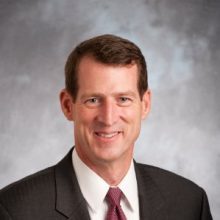
It’s a new year, and Tim Solms has found himself in a new position as Juniper Networks’ new Vice President for U.S. Federal and Managing Director WW Government. WashingtonExec spoke with Solms about what attracted him to join Juniper, what we can expect from the company in the year ahead and the changes he sees coming to government networks in 2016.
WashingtonExec: What led you to join the team at Juniper Networks?
Tim Solms: Juniper’s culture is something that really stood out to me. “The Juniper Way” reflects a commitment to innovation and customer service. It is very real – people believe it, and everyone is committed to it. As part of that, everyone throughout the entire organization has a challenger’s mindset and a strong desire to create disruption and help move our customers forward.
This is exemplified by the work we do with the federal government. We develop solutions that help government agencies move beyond traditional mindsets. They’re looking to step out of their comfort zones and are seeking partners that will help them do that, whether it be through the cloud, new approaches to cybersecurity, or bringing speedier and more reliable network services to individuals wherever they may operate.
In addition to growth, greater market presence and more products, we will continue to focus on the future needs of government and offering solutions in response to those needs. … We’ll also look to grow our services business. We’re going to add to our public sector team to continue supporting ongoing federal engagements.
WashingtonExec: What were some of the highlights for the Juniper public sector team in 2015?
Tim Solms: Juniper worked with several agencies that wanted to move to next-level networking-as-a-service, and we were able to create the solutions they needed. These agencies understood that it was important to transform their networks, and we worked with them to achieve their goals.
We were also very successful in engaging with those who own the missions and align with mission requirements. This is an important distinction from the way that things were done historically, where meetings were typically held with contracting officers and attorneys. Agencies understand that our products and consulting services can help with faster and more efficient execution, which signifies just how important Juniper solutions are to daily operations.
WashingtonExec: How does Juniper give back to the communities in which it does business?
Tim Solms: There is always a citizenship component to what we do, and we continually look for ways to give back into the places where we do business. For instance, we support local STEM initiatives, the USO, Wounded Warrior Project and work with groups dedicated to families whose loved ones have been deployed in theaters of combat.
There are other initiatives with which we’d ultimately like to get involved. One is the Dept. of Defense Training with Industry Program, where military members spend a year within a corporate environment. There’s also the Secretary of Defense Fellowship Program and other congressionally funded programs that allow people from corporate environments to spend time in the government. The government would like technology companies to get involved in these programs and all of them are appropriate for Juniper Networks.
WashingtonExec: What should we expect from Juniper this year? Are you working on any exciting projects?
Tim Solms: In addition to growth, greater market presence and more products, we will continue to focus on the future needs of government and offering solutions in response to those needs. This will require gaining insight into what will be important to government agencies in the future, staying ahead of those needs and serving through our innovative offerings.
We’ll also look to grow our services business. We’re going to add to our public sector team to continue supporting ongoing federal engagements. This will be a core focus for us in 2016, particularly as we work with our partners to quickly deliver effective products and service solutions that integrate with our clients’ existing systems.
WashingtonExec: What changes do you see coming to government networks in 2016?
Tim Solms: The emerging markets for us are areas outside of core IT, such as Internet of Things, big data, and machine learning. Each of these will become increasingly important for agencies, in addition to federal facilities being developed to operate like smart cities. These areas will undoubtedly provide us with the opportunity to engage with different types of partnerships, sales strategies and customers.
We’ll see agencies continue to shift their data centers to support their own transformation and that’s really going to help shape the market over the next year as governments continue to step-up network and data center consolidation initiatives.

